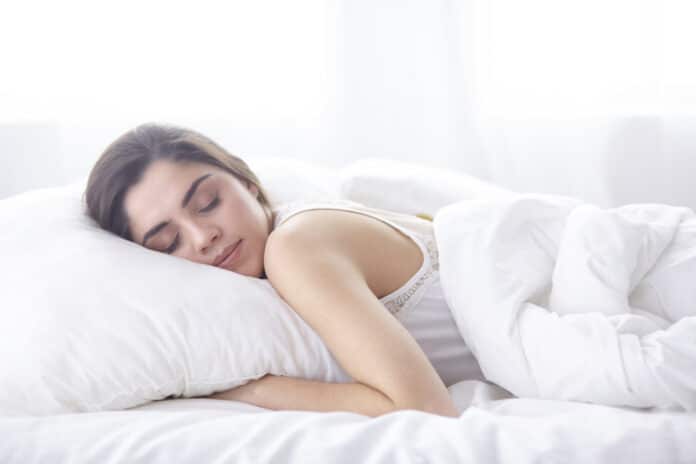
A lot of people believe that music eases the mind and smoothens out anxious thoughts within us. But more than that, music can also help people fall asleep, and we’re not only talking about lullabies and babies.
Studies have discovered that 60 beats per minute melodies help the mind synchronize with the beat. This results in alpha brain waves, which are present when the brain is in a state of conscious relaxation. These studies further opined that such a person would need to listen to such music for at least forty-five minutes for lasting results.
Concerning the type of music required to fall asleep, one may be surprised to know that it’s not only the beats of the music that may determine whether you fall asleep with the music. A study conducted and published in PLOS ONE noted that listening to songs might help you sleep better, regardless of the beats.
The study also indicated that previous studies mentioned how almost half of the respondents interviewed agreed to use music to sleep. However, despite the commonality of such a practice, there needed to be more research on the type of music that suits this purpose. Although the data is not accessible for public use, the data showed that Spotify —a music streaming platform— is used in about 92 countries and that people of all ages use music streaming services.
To engage in this analysis, the researchers organized a playlist encompassing any variation of the word “sleep” in any language, removing results that weren’t music, podcasts, or nature sounds. This categorization left the researchers with 986 playlists and about 130,150 tracks. These tracks were then categorized based on tempos. The most significant clusters were, expectedly, ambient music, although the researchers found other clusters, such as indie tracks and pop hits.
In explaining the selection of sleeping music, Dr. Alex Dimitriu, a double board-certified psychiatrist and the founder of the Menlo Park Psychiatry & Sleep Medicine in California, stated that the human brain usually recognizes and enjoys such patterns. According to him, songs that require energetic tempos may help people sleep under the right conditions.
Dr. Alex also noted that novelty stimulates the brain. Therefore, it helps that your brain is familiar with the song to help you fall asleep. This has been corroborated by Dr. Kuljeet (Kelly) Gil, a sleep physician in Illinois, who noted that it’s not about the danceability of the music that determines someone’s ability to fall asleep listening to it, but rather how the music triggers the emotions of the person. Therefore, it’s not surprising to find people who find upbeat music quite calming to their bodies and mind.
Conclusively, Dr. Dimitieu noted that to ensure a healthy rest after listening to music, you should:
- Not wear headphones that could tangle around your face or neck;
- Use a sleep timer that ensures the music is turned off automatically and;
- Follow good sleep hygiene, such as avoiding screen time before bed.



















